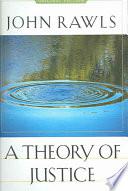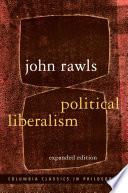Source: A Theory of Justice (1971; 1975; 1999), Chapter II, Section 14, pg. 87-88
Context: Occasionally this reflection is offered as an excuse for ignoring injustice, as if the refusal to acquiesce in injustice is on a par with being unable to accept death. The natural distribution is neither just nor unjust; nor is it unjust that persons are born into society at some particular position. These are simply natural facts. What is just and unjust is the way that institutions deal with these facts.
Context: We may reject the contention that the ordering of institutions is always defective because the distribution of natural talents and the contingencies of social circumstance are unjust, and this injustice must inevitably carry over to human arrangements. Occasionally this reflection is offered as an excuse for ignoring injustice, as if the refusal to acquiesce in injustice is on a par with being unable to accept death. The natural distribution is neither just nor unjust; nor is it unjust that persons are born into society at some particular position. These are simply natural facts. What is just and unjust is the way that institutions deal with these facts. Aristocratic and caste societies are unjust because they make these contingencies the ascriptive basis for belonging to more or less enclosed and privileged social classes. The basic structure of these societies incorporates the arbitrariness found in nature. But there is no necessity for men to resign themselves to these contingencies. The social system is not an unchangeable order beyond human control but a pattern of human action. In justice as fairness men agree to avail themselves of the accidents of nature and social circumstance only when doing so is for the common benefit. The two principles are a fair way of meeting the arbitrariness of fortune; and while no doubt imperfect in other ways, the institutions which satisfy these principles are just.
Works

A Theory of Justice
John Rawls
Political Liberalism
John RawlsJustice as Fairness: A Restatement
John RawlsFamous John Rawls Quotes
Source: A Theory of Justice (1971; 1975; 1999), Chapter VI, Section 59, pg. 388
Source: A Theory of Justice (1971; 1975; 1999), Chapter II, Section 11, pg. 60
Source: A Theory of Justice (1971; 1975; 1999), Chapter I, Section 2, pg. 10
Context: The concept of justice I take to be defined, then, by the role of its principles in assigning rights and duties and in defining the appropriate division of social advantages. A conception of justice is an interpretation of this role.
Source: A Theory of Justice (1971; 1975; 1999), Chapter IX, Section 87, p. 586
Context: I have tried to set forth a theory that enables us to understand and to assess these feelings about the primacy of justice. Justice as fairness is the outcome: it articulates these opinions and supports their general tendency.
Source: A Theory of Justice (1971; 1975; 1999), Chapter I, Section 1, pg. 3-4
Context: Justice is the first virtue of social institutions, as truth is of systems of thought. A theory however elegant and economical must be rejected or revised if it is untrue; likewise laws and institutions no matter how efficient and well-arranged must be reformed or abolished if they are unjust. Each person possesses an inviolability founded on justice that even the welfare of society as a whole cannot override. For this reason justice denies that the loss of freedom for some is made right by a greater good shared by others. It does not allow that the sacrifices imposed on a few are outweighed by the larger sum of advantages enjoyed by many. Therefore in a just society the liberties of equal citizenship are taken as settled; the rights secured by justice are not subject to political bargaining or to the calculus of social interests.
John Rawls Quotes about justice
“The principles of justice are chosen behind a veil of ignorance.”
Source: A Theory of Justice (1971; 1975; 1999), Chapter I, Section 3, pg. 12
Source: A Theory of Justice (1971; 1975; 1999), Chapter II, Section 10, pg. 58
Source: A Theory of Justice (1971; 1975; 1999), p. 216
“Justice is happiness according to virtue.”
Source: A Theory of Justice (1971; 1975; 1999), Chapter V, Section 48, p. 310
Source: A Theory of Justice (1971; 1975; 1999), Chapter I, Section 4, p. 21
“To each according to his threat advantage does not count as a principle of justice.”
Source: A Theory of Justice (1971; 1975; 1999), Chapter III, Section 24, pg. 141
John Rawls Quotes about personality
Source: A Theory of Justice (1971; 1975; 1999), p. 117
Source: A Theory of Justice (1971; 1975; 1999), p. 217
“I have assumed throughout that the persons in the original position are rational.”
Source: A Theory of Justice (1971; 1975; 1999), Chapter III, Section 25, pg. 142
Source: A Theory of Justice (1971; 1975; 1999), Chapter II, Section 15, pg. 93
Source: A Theory of Justice (1971; 1975; 1999), Chapter IX, Section 81, p. 540
John Rawls: Trending quotes
“Justice is the first virtue of social institutions, as truth is of systems of thought.”
Source: A Theory of Justice (1971; 1975; 1999), Chapter I, Section 1, pg. 3-4
Context: Justice is the first virtue of social institutions, as truth is of systems of thought. A theory however elegant and economical must be rejected or revised if it is untrue; likewise laws and institutions no matter how efficient and well-arranged must be reformed or abolished if they are unjust. Each person possesses an inviolability founded on justice that even the welfare of society as a whole cannot override. For this reason justice denies that the loss of freedom for some is made right by a greater good shared by others. It does not allow that the sacrifices imposed on a few are outweighed by the larger sum of advantages enjoyed by many. Therefore in a just society the liberties of equal citizenship are taken as settled; the rights secured by justice are not subject to political bargaining or to the calculus of social interests.
“We cannot at the end count them a second time because we do not like the result.”
Source: A Theory of Justice (1971; 1975; 1999), Chapter III, Section 23, pg. 135
Context: The claims of existing social arrangements and of self interest have been duly allowed for. We cannot at the end count them a second time because we do not like the result.
Source: Justice as Fairness: A Restatement
John Rawls Quotes
Source: A Theory of Justice (1971; 1975; 1999), Chapter III, Section 21, pg. 126
Source: A Theory of Justice (1971; 1975; 1999), Chapter V, Section 42, p. 268
Source: A Theory of Justice (1971; 1975; 1999), Chapter IX, Section 82, p. 538
Source: A Theory of Justice (1971; 1975; 1999), Chapter III, Section 28, pg. 171
“A just system must generate its own support.”
Source: A Theory of Justice (1971; 1975; 1999), Chapter V, Section 41, p. 261
Source: A Theory of Justice (1971; 1975; 1999), Chapter IX, Section 82, p. 547
Source: A Theory of Justice (1971; 1975; 1999), Chapter IX, Section 84, p. 558
Source: A Theory of Justice (1971; 1975; 1999), Chapter I, Section 6, pg. 31
“In justice as fairness society is interpreted as a cooperative venture for mutual advantage.”
Source: A Theory of Justice (1971; 1975; 1999), Chapter II, Section 14, pg. 84
“Intuitionism is not constructive, perfectionism is unacceptable.”
Source: A Theory of Justice (1971; 1975; 1999), Chapter I, Section 9, pg. 52
“Ideal legislators do not vote their interests.”
Source: A Theory of Justice (1971; 1975; 1999), Chapter V, Section 43, p. 284
“Ideally a just constitution would be a just procedure arranged to insure a just outcome.”
Source: A Theory of Justice (1971; 1975; 1999), Chapter IV, Section 31, pg. 197
Source: A Theory of Justice (1971; 1975; 1999), Chapter I, Section 5, pg. 25
Source: A Theory of Justice (1971; 1975; 1999), Chapter IX, Section 86, p. 577
Source: A Theory of Justice (1971; 1975; 1999), Chapter I, Section 3, pg. 15
Source: A Theory of Justice (1971; 1975; 1999), Chapter III, Section 23, pg. 131
“The fundamental criterion for judging any procedure is the justice of its likely results.”
Source: A Theory of Justice (1971; 1975; 1999), Chapter IV, Section 37, p. 230
“If A were not allowed his better position, B would be even worse off than he is.”
Source: A Theory of Justice (1971; 1975; 1999), Chapter II, Section 17, pg. 103
Source: A Theory of Justice (1971; 1975; 1999), Chapter IV, Section 40, p. 256
Source: A Theory of Justice (1971; 1975; 1999), Chapter III, Section 29, pg.177
Source: A Theory of Justice (1971; 1975; 1999), Chapter III, Section 26, pg. 151
Source: A Theory of Justice (1971; 1975; 1999), Chapter IX, Section 83, p. 549
“The fault of the utilitarian doctrine is that it mistakes impersonality for impartiality.”
Source: A Theory of Justice (1971; 1975; 1999), Chapter III, Section 30, pg. 190
Source: A Theory of Justice (1971; 1975; 1999), Chapter IV, Section 33, p. 209
Source: A Theory of Justice (1971; 1975; 1999), Chapter IV, Section 36, p. 226
Source: A Theory of Justice (1971; 1975; 1999), Chapter II, Section 13, pg. 79
Source: A Theory of Justice (1971; 1975; 1999), Chapter II, Section 13, pg. 79
Preface, pg. xii
A Theory of Justice (1971; 1975; 1999)
“We may suppose that everyone has in himself the whole form of a moral conception.”
Source: A Theory of Justice (1971; 1975; 1999), Chapter I, Section 9, pg. 50
“Clearly when the liberties are left unrestricted they collide with one another.”
Source: A Theory of Justice (1971; 1975; 1999), Chapter IV, Section 32, p. 203
Source: A Theory of Justice (1971; 1975; 1999), Chapter II, Section 12, pg. 73
“An intuitionist conception of justice is, one might say, but half a conception.”
Source: A Theory of Justice (1971; 1975; 1999), Chapter I, Section 8, pg. 41
Source: A Theory of Justice (1971; 1975; 1999), Chapter II, Section 16, pg. 95
Source: A Theory of Justice (1971; 1975; 1999), Chapter III, Section 26, pg. 157
Source: A Theory of Justice (1971; 1975; 1999), Chapter III, Section 22, pg. 126
Source: A Theory of Justice (1971; 1975; 1999), Chapter IX, Section 83, p. 554
“The suppression of liberty is always likely to be irrational.”
Source: A Theory of Justice (1971; 1975; 1999), Chapter IV, Section 33, p. 210
“This is a long book, not only in pages.”
Preface, pg. viii
A Theory of Justice (1971; 1975; 1999)
Source: A Theory of Justice (1971; 1975; 1999), Chapter IV, Section 35, p. 218
“Justice as fairness provides what we want.”
Source: A Theory of Justice (1971; 1975; 1999), Chapter III, Section 30, pg. 190
Source: A Theory of Justice (1971; 1975; 1999), Chapter II, Section 17, pg. 102
Source: Political Liberalism (1993), p. 6
Source: A Theory of Justice (1971; 1975; 1999), p. 14.